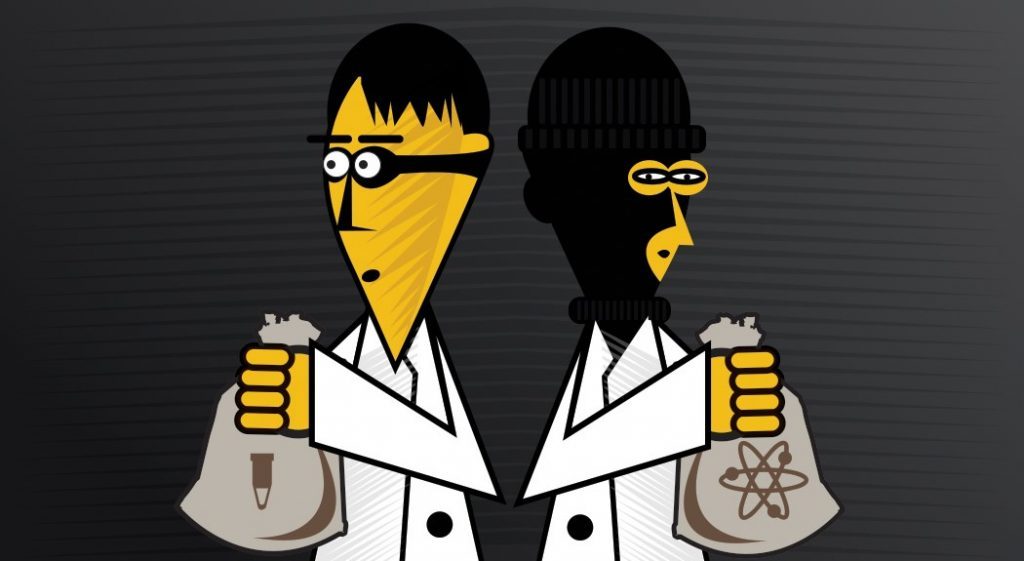There’s a thin line between madness and immorality. This idea of the “mad scientist” has taken on a charming, even glorified perception in popular culture. From the campy portrayal of Nikola Tesla in the first issue of Superman, to Dr. Frankenstein, to Dr. Emmet Brown of Back to the Future, there’s no question Hollywood has softened the idea of the mad scientist. So, I will not paint the scientists involved in these five cases of research fraud as such. The immoral actions of these researchers didn’t just affect their own lives, but also the lives and careers of innocent students, patients, and colleagues.
Academic fraud is not only a crime, it is a threat to the intellectual integrity upon which the evolution of knowledge rests. It also compromises the integrity of the institution, as any institution will take a blow to their reputation for allowing academic misconduct to go unnoticed under its watch.
Here, you will find the top five most notorious cases of fraud in university research in only the last few years
Fraud in Psychology Research
In 2011, a Dutch psychologist named Diederik Stapel committed academic fraud in a number of publications over the course of ten years, spanning three different universities: the University of Groningen, the University of Amsterdam, and Tilburg University.
Among the dozens of studies in question, most notably, he falsified data on a study which analyzed racial stereotyping and the effects of advertisements on personal identity. The journal Science published the study, which claimed that one particular race stereotyped and discriminated against another particular race in a chaotic, messy environment, versus an organized, structured one. Stapel produced another study which claimed that the average person determined employment applicants to be more competent if they had a male voice. As a result, both studies were found to be contaminated with false, manipulated data.
Psychologists discovered Stapel’s falsified work and reported that his work did not stand up to scrutiny. Moreover, they concluded that Stapel took advantage of a loose system, under which researchers were able to work in almost total secrecy and very lightly maneuver data to reach their conclusions with little fear of being contested.
A host of newspapers published Stapel’s research all over the world. He even oversaw and administered over a dozen doctoral theses; all of which have been rendered invalid, thereby compromising the integrity of former students’ degrees.
“I have failed as a scientist and a researcher. I feel
ashamed for it and have great regret,” lamented Stapel to the New York Times.
You can read the particulars of this fraud case here.
Duke University Cancer Research Fraud
In 2010, Dr. Anil Potti left Duke University after allegations of research fraud surfaced. The fraud came in waves. First, Dr. Potti flagrantly lied about being a Rhodes Scholar to attain hundreds of thousands of dollars in grant money from the American Cancer Society. Then, Dr. Potti was caught outright falsifying data in his research, after he discovered one of his theories for personalized cancer treatment was disproven. This theory was intended to justify clinical trials for over a hundred patients. Because it was disproven, the trials could no longer take place. Dr. Potti falsified data in order to continue with these trials and attain further funding.
Over a dozen papers that he published were retracted from various medical journals, including the New England Journal of Medicine.
Dr. Potti had been working on personalized cancer treatment he hailed as “the holy grail of cancer.” There are a lot of people whose bodies fail to respond to more traditional cancer treatments. Personalized treatments, however, offer hope because patients are exposed to treatments that are tailored to their own unique body constitution, and the type of tumors they have. Because of this, patients flocked to Duke to register for trials for these drugs. They were even told there was an 80% chance that they would find the right drug for them.
The patients who partook in these trials filed a lawsuit against Duke, alleging that the institution performed ill-performed chemotherapy on participants. Patients were so excited that there was renewed hope for their cancer treatment, that they trusted Dr. Potti’s trials and drugs. Sadly, many of these cancer patients suffered from unusual side effects like blood clots and damaged joints.
Duke settled these lawsuits with the families of the patients.
You can read details of the case here.
Plagiarism in Kansas
Mahesh Visvanathan and Gerald Lushington, two computer scientists from the University of Kansas, confessed to accusations of plagiarism. They copied large chunks of their research from the works of other scientists in their field. The plagiarism was so ubiquitous that even the summary statement of their presentation was lifted from another scientist’s article in a renowned journal.
Visvanathan and Lushington oversaw a program at the University of Kansas in which researchers reviewed and processed large amounts of data for DNA analysis.
In this case, Visvanathan committed the plagiarism and Lushington knowingly refrained from reporting it to the university. Learn more about this case here.
Columbia University Research Misconduct
The year was 2010. Bengü Sezen was finally caught falsifying data after ten years of continuously committing fraud. Her fraudulent activity was so blatant that she even made up fake people and organizations in an effort to support her research results. Sezen was found guilty of committing over 20 acts of research misconduct, with about ten research papers recalled for redaction due to plagiarism and outright fabrication.
Sezen’s doctoral thesis was fabricated entirely in order to produce her desired results. Additionally, her misconduct greatly affected the careers of other young scientists who worked with her. These scientists dedicated a large portion of their graduate careers trying to reproduce Sezen’s desired results.
Columbia University moved to retract her Ph.D in chemistry. Sezen fled the country during her investigation.
Read further details about this case here.
Penn State Fraud
In 2012, Craig Grimes ripped off the U.S. government to the tune of $3 million. He pleaded guilty to wire fraud, money laundering, and engaging in fraudulent statements to attain grant money.
Grimes bamboozled the National Institute of Health (NIH) and the National Science Foundation (NSF) into granting him $1.2 million for research on gases in blood, which helps detect disorders in infants. Sadly, it was revealed by the Attorney’s Office that Grimes never carried out this research, and instead used the majority of his granted funds for personal expenditures.
In addition to that $1.2 million, Grimes also falsified information that helped him attain $1.9 million in grant money via the American Recovery and Reinvestment Act.
Consequently, a federal judge ruled that Grimes spend 41 months in prison and pay back over $660,000 to Penn State, the NIH, and the NSF.
Check out the details about this case here.



